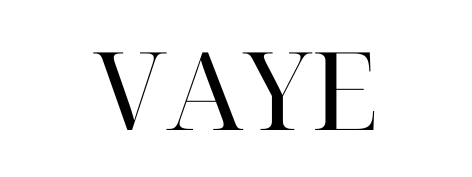
Habit tracker meets budget tracker: how to combine saving and self-care
Share
More and more people are discovering the power of tracking their habits. A habit tracker is a super handy tool for this. But did you know you can also perfectly combine it with your finances? Yes, saving is just... a habit. In this blog post, we'll show you how to use a habit tracker and budget tracker together to not only achieve your financial goals but also take good care of yourself.
What is a habit tracker anyway?
A habit tracker is a way to keep track of the habits you want to maintain daily, weekly, or monthly. For example, you make a list of things you want to do each day (drink water, go to bed on time, don't scroll before bed) and check them off each day as you complete them. You can do this in a planner, bullet journal, or with a printable.
And what is a budget tracker?
A budget tracker is essentially the same idea, but for your money. You can use it to track your spending, what you're saving on, or how much you're saving through cash stuffing. It helps you gain insight into your financial habits and make your goals concrete.
Many of our customers use our budget binders in combination with cash envelopes and savings trackers to keep track.
Why habit tracking and budget tracking are a golden combination
Money and habits are closely linked. Just think:
- Buying “just something small” every day without thinking.
- Regularly ordering food out of convenience (and tiredness).
- Not knowing where your money goes because you don't keep track of your expenses.
Tracking your habits gives you control over your behavior. And with a budget tracker, you immediately see the effects. One reinforces the other.
For example, if you keep track of how many days you bring your lunch to work and you save that amount, you'll literally see the effect of your habit on your savings goal.
Habits That Save Money (and Make You Feel Good)
Here are a few examples of habits you can track with a habit tracker that will affect your budget:
-
Don't shop online out of boredom
- Every day you don't do this = a checkmark on your tracker.
- Save the amount you would normally spend in a cash envelope .
-
Bring lunch instead of buying it
- Good for your wallet and often healthier too.
- Every day that you succeed, put a cross in your habit tracker.
-
Record your expenses daily
- This can be done in a notebook or in an expense tracker
- It is a habit that creates more awareness.
-
Update your cash binder every Sunday
- Routine + rest. Make it a fixed ritual.
-
At least once a week "no spend day"
- Use your habit tracker to check off the days you didn't spend anything at all.
How to create your own combined tracker
Want to keep track of your money and lifestyle habits? It's perfectly possible! Here's how:
1. Think in categories
For example, group your habits as:
- Self-care (meditation, 8 hours of sleep)
- Money (don't order, bring lunch, update cash stuffing)
- House (cleaning kitchen, laundry)
3. Choose a maximum of 5 habits
Less is more. Trying too much at once is often counterproductive. Start with a few clear habits that really make an impact.
4. Connect your habit tracker to your planner
Already have a budget planner or notebook ? Simply stick your tracker in there, or draw it yourself on a new page.
Our favorite combination: habit tracker + savings challenge
One of the most fun ways to combine habit tracking with saving is with a savings challenge . For example:
- Every time you achieve 100% of your habits for the day, you save €2.
- Every full week without impulse spending? €10 towards your holiday envelope!
- Every day you practice 3 healthy habits? €1 extra goes to your savings.
Use a separate savings challenge tracker in your binder for this or stick it next to your habit tracker.
How do you keep it up?
Completing a tracker is easy, but sticking to it is often the hardest part. Here are a few tips from our community:
- Plan a fixed time during the day : for example, in the evening after brushing your teeth.
- Make it fun : use crayons, stickers, or highlighters.
- Reward yourself : after 7 days of perseverance, you can do something fun (without immediately emptying your piggy bank!).
- Hang your tracker somewhere visible : refrigerator, desk, mirror...
It's your turn
Whether you want to save for a vacation, gain more peace of mind, or simply structure your week better, a habit tracker can help. And combined with a budget tracker, it's a powerful combination. You make small steps visible, and that motivates you to keep going.
Have you already used a habit tracker? Or do you use one in combination with cash stuffing? Let us know on Instagram and tag @vayeamsterdam. We regularly share your tips and successes!
